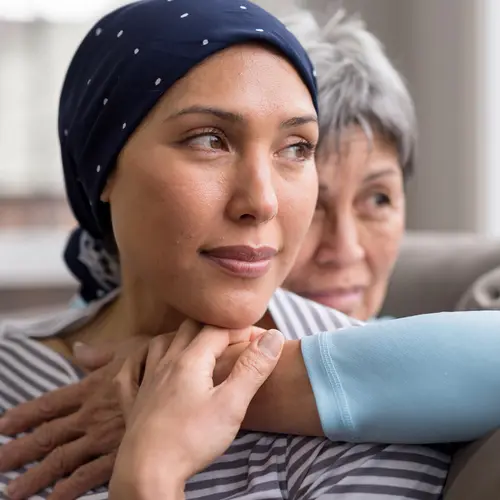Feb. 16, 2023 – Older breast cancer patients can consider skipping weeks of grueling radiation therapy after lumpectomy surgery, a new study suggests.
The study, published today in The New England Journal of Medicine, showed that women ages 65 and older who were randomly chosen to skip radiation had the same 10-year survival rate as women who got the extra treatment. But those who didn’t get radiation were much more likely to have their cancer come back and need more treatment.
“Radiotherapy can place a heavy burden on patients, particularly older ones. Our findings will help clinicians guide older patients on whether this particular aspect of early breast cancer treatment can be omitted in a shared decision-making process, which weighs up all the risks and benefits,” lead study author Ian Kunkler, a professor of clinical oncology at the University of Edinburgh, said in a statement.
Radiation side effects have been linked to heart problems and secondary cancers, and there has been little study of it in older breast cancer patients.
The phase III trial enrolled 1,326 patients ages 65 and older with hormone-sensitive breast cancer that had not spread to other parts of the body, such as the lymph nodes, and whose tumors measured 3 centimeters or smaller. They all had lumpectomies and took medications shown to reduce the risk of recurrence in hormone-sensitive cancers.
Patients were assigned to get either radiation to the whole breast or none at all.
There is a tradeoff of skipping radiation, the results showed. Local recurrence (meaning breast cancer was found again in the same breast) within 10 years was significantly lower in the group who got the extra treatment – 0.9% of women who got radiation had a recurrence, versus 9.5% of women who did not get radiation.
“Avoiding a local recurrence is a value for many women,” Naamit Kurshan Gerber, MD, a radiation oncologist at NYU Langone’s Perlmutter Cancer Center, told The Wall Street Journal. “Do they want to do everything they can?”
But the two groups had similar rates of survival at 10 years (81%) and of the cancer progressing to metastatic breast cancer, which means the cancer spread to other parts of the body such as the bones, liver, or lungs.
“This is a really important validation that’s going to make people say, ‘Hey, we’re going to be OK without radiation,’” Dana-Farber Cancer Institute breast cancer specialist Harold Burstein, MD, PhD, told the Journal. “It’s going to allow clinicians to spare more and more women.”

